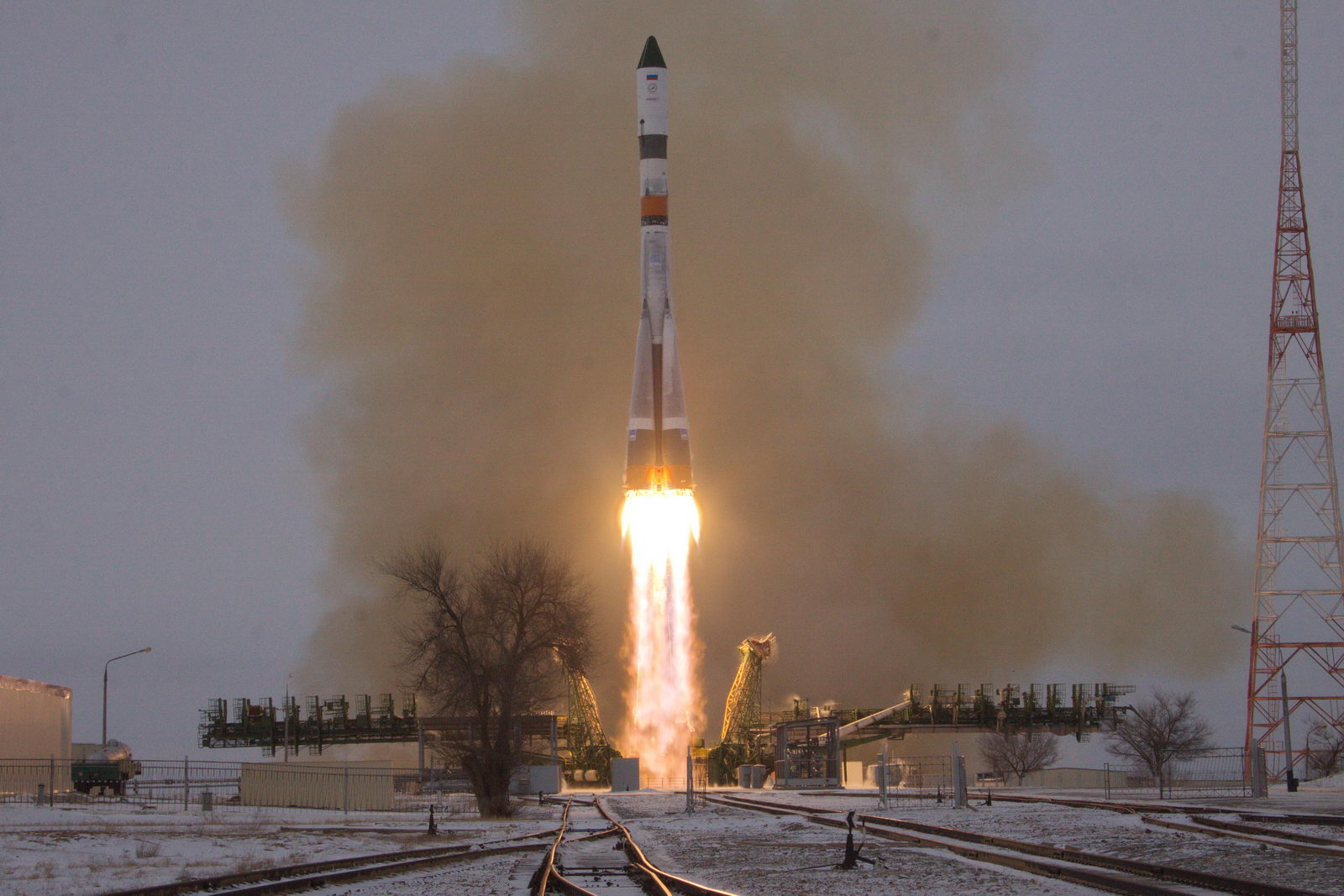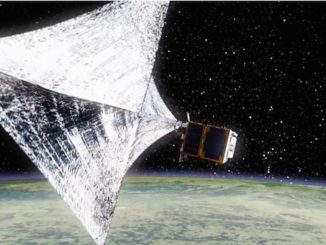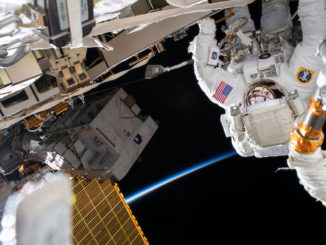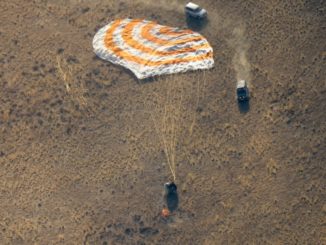
The first spacecraft in a new generation of Russian Progress cargo vehicles parked at the International Space Station on Wednesday, bringing a holiday delivery of more than 5,000 pounds of fuel, water and supplies for the research lab’s six-person crew.
The Progress MS-01 supply ship arrived at the space station’s Pirs module at 1027 GMT (5:27 a.m. EST) Wednesday after a two-day transit from a launch pad at the Baikonur Cosmodrome in Kazakhstan.
Docking occurred as the space station sailed 407 kilometers (253 miles) over western Mongolia.
The uncrewed cargo carrier took 2,436 kilograms, or about 5,370 pounds, of equipment and fluids to the space station for the outpost’s last supply delivery of the year.
According to a cargo manifest provided by Roscosmos — the Russian space agency — the Progress MS-01 mission took 880 kilograms (1,940 pounds) of propellant to the space station for refueling of the Zvezda service module and reboosts of the orbiting complex.
Also delivered Wednesday: 1,252 kilograms (2,760 pounds) of supplies and equipment in the Progress craft’s pressurized cargo hold, 420 kilograms (926 pounds) of water, 24 kilograms (52 pounds) of oxygen and 22 kilograms (48 pounds) of air.
The cargo mission, known as Progress 62P in the space station’s flight sequence, carried 379 kilograms (835 pounds) of Russian food rations, 199 kilograms (438 pounds) of napkins, waste containers and other sanitary equipment, 162 kilograms (357 pounds) of parts for the Russian power supply system, 60 kilograms (132 pounds) of medical and hygiene gear, and 35 kilograms (77 pounds) of batteries, hard drives and other support equipment.
The spacecraft blasted off aboard a Soyuz-2.1a rocket at 0844 GMT (3:44 a.m. EST) Monday, entering orbit less than 10 minutes later. The Progress MS-01 logistics freighter took a two-day trip to the space station — not the six-hour journey favored by Russian managers — to allow extra time test out new technologies installed on the spacecraft.

The Progress MS series of cargo vehicles carry upgrades that will fly on Soyuz crew capsules will beginning in mid-2016.
While external views show little change from previous Progress supply ships, the Progress MS generation features an upgraded command and telemetry system, new digital communications equipment to improve video links with the space station during its rendezvous with the outpost, and a backup motion control system for the Progress spacecraft’s manual control system, which cosmonauts on the station would use to take over if its autopilot failed during docking.
The Progress MS series of spacecraft also carry an improved Kurs rendezvous radar, which feeds range closure rate data to the capsule’s computers during approach to the space station. A radio link with Russian data relay satellites in geostationary orbit is also installed on the new generation of Progress vehicles, allowing better communications between the spacecraft and ground controllers even when it is flying outside the range of ground stations on Russian territory, according to Roscosmos.
The spaceship’s navigation system, space debris shielding and spotlight also see improvements, along with the mechanism that firmly latches the cargo capsule to the space station after docking.
Astronauts Scott Kelly and Tim Kopra cleared the way for the Progress docking with an unexpected spacewalk Monday to move a stuck robotic arm transporter along rails to a parking site on the space station’s truss. Rules call for the transporter to be locked down for dockings of visiting spacecraft to caution against unsafe movement of the rail car.
The Progress MS-01 spacecraft will remain attached to the space station until early July, when it will undock and be guided to a destructive re-entry over the Pacific Ocean with a load of the orbiting lab’s trash.
Email the author.
Follow Stephen Clark on Twitter: @StephenClark1.



